
Find Help
More Items From Ergsy search
-

Navigating Child Custody and Visitation Rights in Modern UK
Relevance: 100%
-

How have child custody laws changed in 2026?
Relevance: 56%
-

Navigating Child Custody Laws in the UK
Relevance: 54%
-

Have any changes been made regarding the enforcement of visitation rights?
Relevance: 44%
-

What is the status of joint custody provisions in the 2026 family court updates?
Relevance: 43%
-

What is the impact of the 2026 changes on grandparent visitation rights?
Relevance: 40%
-

Understanding Your Rights During Divorce Proceedings in the UK
Relevance: 34%
-

How are parental rights addressed differently in the 2026 family court updates?
Relevance: 34%
-

Understanding Parental Rights in Light of New UK Child Protection Legislation
Relevance: 32%
-

Understanding Your Rights in Divorce Proceedings
Relevance: 28%
-
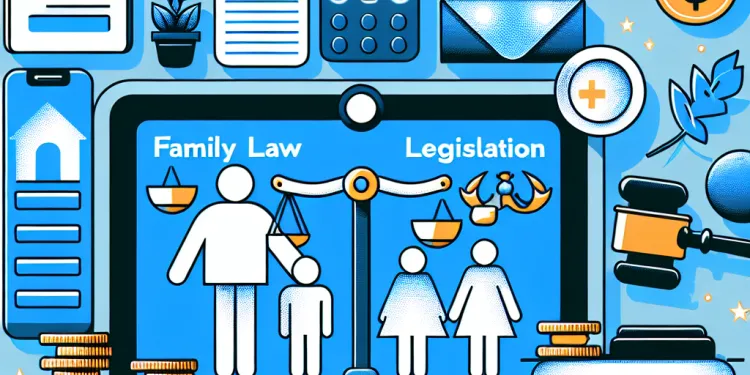
Impacts of Recent Changes to Family Law Legislation
Relevance: 27%
-

How has child support calculation been updated in 2026?
Relevance: 25%
-
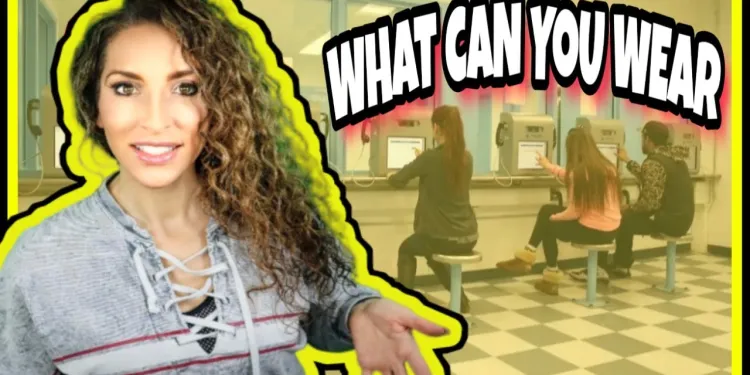
Visiting a Prisoner - What To Wear on a prison visit
Relevance: 25%
-

Does the right to access my medical records apply to minors?
Relevance: 24%
-
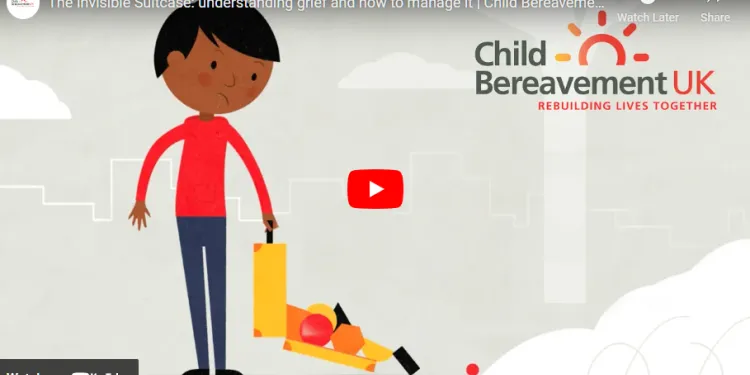
Child Bereavement
Relevance: 23%
-

My Stammering Child
Relevance: 23%
-

Is screening painful or risky for my child?
Relevance: 22%
-

How often should I visit my NHS dentist?
Relevance: 22%
-

Are there modern outbreaks of bubonic plague?
Relevance: 22%
-

Understanding Your Rights: Legal Support for Families During Economic Turbulence
Relevance: 22%
-
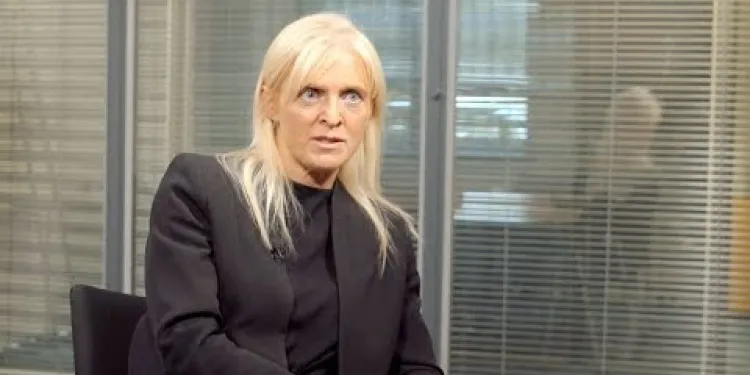
Child Care Proceedings | Family Law
Relevance: 22%
-

How often can I visit someone in prison?
Relevance: 21%
-

Can my child get braces on the NHS?
Relevance: 21%
-

Have the rights of same-sex couples been affected by the 2026 family court changes?
Relevance: 21%
-

What are the visiting hours for care homes?
Relevance: 21%
-

How often should I visit the dentist?
Relevance: 20%
-

Navigating Changes in Family Law Post-Brexit
Relevance: 20%
-
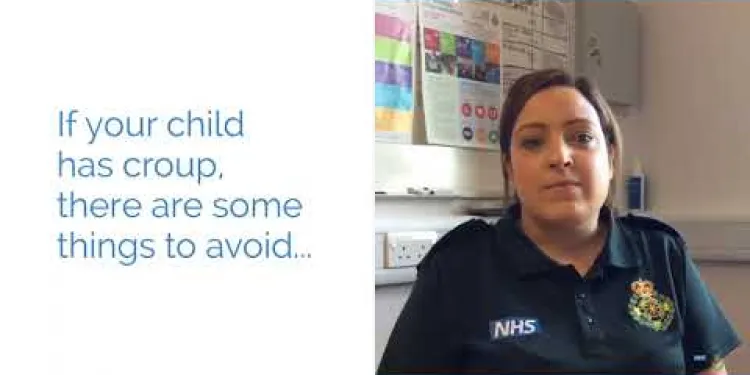
What to do when your child has... croup
Relevance: 20%
-

Magistrates in the Family Court: A Private Law Case
Relevance: 20%
-
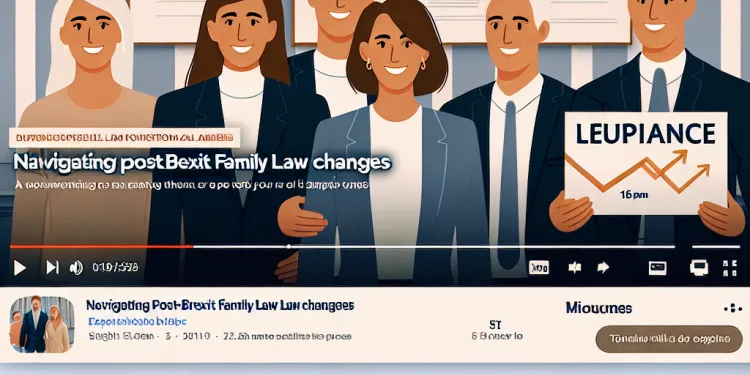
Navigating Post-Brexit Family Law Changes
Relevance: 20%
-

How can I tell if my child is being groomed?
Relevance: 20%
-

What are the changes to Family Court Law in 2026?
Relevance: 20%
-

I'm Getting a Divorce | Tips From a Divorce Lawyer
Relevance: 20%
-

The Human Rights Act
Relevance: 20%
-

What should I expect when visiting a prison?
Relevance: 20%
-

Caring for a child with fever | NHS
Relevance: 20%
-

What updates have been made to enforce child support in 2026?
Relevance: 20%
-

Having a child with Down's syndrome | NHS
Relevance: 19%
-
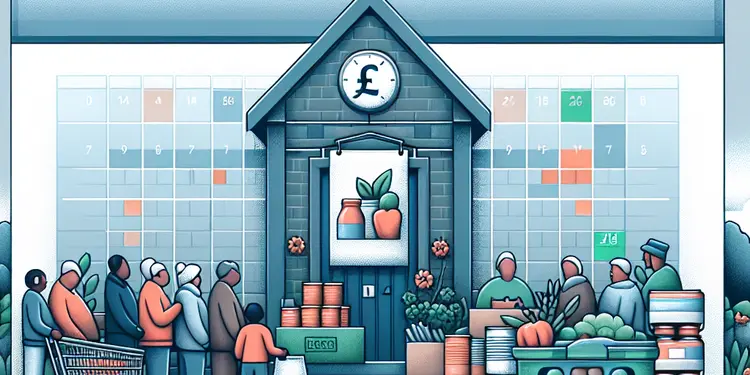
How often can I visit a food bank?
Relevance: 19%
-

Three-year limit for child sexual abuse claims to be removed
Relevance: 19%
Navigating Child Custody and Visitation Rights in Modern UK
Understanding Child Custody Types
In the UK, child custody is referred to as 'child arrangements.' These arrangements typically include decisions about where the child lives and how much time they spend with each parent. The two main types of custody are 'shared custody,' where the child spends significant time with both parents, and 'sole custody,' where one parent has the majority of the responsibility and care.
Legal Proceedings and Mediation
If parents cannot agree on custody arrangements, they may need to seek legal resolution. Courts in the UK always prioritize the child's welfare in these decisions. Before heading to court, parents are encouraged to attend mediation, which provides a platform for both parties to discuss issues and reach a mutual agreement. Courts often require evidence that mediation has been attempted before legal proceedings can commence.
Factors Influencing Court Decisions
The court considers various factors when making a custody decision, including the child's age, physical and emotional needs, and the ability of each parent to meet those needs. The wishes of the child, particularly if they are older, can also be influential. Additionally, the court assesses the impact of any changes in the child's circumstances and relationships with other family members.
Visitation Rights and Schedules
Visitation, or 'contact,' schedules are established when one parent has primary custody, and the other parent needs specified times to be with their child. These schedules can be flexible or more structured, depending on the situation. Schedules generally include regular visits, holiday arrangements, and special occasions. Courts strive to ensure the child maintains a meaningful relationship with both parents.
Modifying Child Arrangements
Child custody and visitation arrangements may need to change over time due to evolving needs and circumstances. Either parent can request a modification by returning to mediation or applying to the court. Common reasons for modifications include changes in work schedules, relocations, or the changing needs of the child as they grow older. The primary focus will always be on what is best for the child's welfare.
Legal Support and Resources
Navigating the complexities of child custody in the UK can be challenging. It is often beneficial to seek legal advice from solicitors who specialize in family law. Several resources, including Citizens Advice and various family support organizations, offer guidance and support to parents dealing with custody issues. Understanding your rights and responsibilities is crucial for ensuring the best possible outcome for your child.
Understanding Child Custody and Visits in the UK Today
What is Child Custody?
In the UK, we call child custody 'child arrangements.' This means decisions about where the child lives and how much time they spend with each parent. There are two main types: 'shared custody,' where the child spends a lot of time with both parents, and 'sole custody,' where one parent takes care of the child most of the time.
Legal Help and Mediation
If parents cannot agree on who the child lives with, they may need legal help. In the UK, the child's happiness is the most important thing. Before going to court, parents should try mediation. Mediation is a way to talk and sort things out together. Parents usually need to show they have tried mediation before going to court.
How Courts Decide Custody
When deciding custody, the court looks at things like the child's age, what the child needs, and which parent can give that care. If the child is older, their wishes can be important. The court also thinks about how changes affect the child and their relationship with family members.
Visitation Rights and Plans
Visitation means 'contact' or time to be with the child. This happens when one parent has the main responsibility, and the other parent has certain times to visit. These plans can be flexible or fixed. They include regular visits, holidays, and special days. Courts want children to have a strong bond with both parents.
Changing Child Arrangements
As time goes on, child arrangements might need to change. This could be because of new work times, moving house, or the child needs something different as they grow. Parents can ask for changes through mediation or court if needed. The focus is always on what keeps the child safe and happy.
Getting Legal Support and Help
Child custody can be tricky in the UK. It helps to get advice from family law solicitors. Places like Citizens Advice and family support groups can help too. Knowing your rights helps you make the best choices for your child.
Frequently Asked Questions
What is child custody?
Child custody refers to the legal and practical relationship between a parent and their child, including the parent's right to make decisions for the child and the duty to care for them.
What types of child custody are there in the UK?
In the UK, child custody can be 'joint' where both parents share responsibilities, or 'sole' where one parent has the majority of the responsibility.
How is child custody decided in the UK?
Child custody is decided based on the best interests of the child, considering factors such as the child's own wishes, their emotional and physical needs, the impact of any changes, and each parent's ability to care for the child.
What is a child arrangement order?
A Child Arrangement Order specifies who the child will live with, spend time with, and have contact with, replacing previous terms like 'custody' and 'access.'
Do mothers have an automatic right to custody in the UK?
No, custody is not automatically granted to mothers. The decision is based on the best interests of the child, without gender bias.
Can fathers get custody of their children in the UK?
Yes, fathers can get custody. Courts assess each parent's situation and capabilities, focusing on the child's best interests.
What if parents cannot agree on child custody?
If parents cannot agree, they may need to attend mediation. If mediation fails, the courts can make a decision on custody.
How does domestic abuse affect child custody arrangements?
If domestic abuse is proven, it significantly impacts custody decisions. The court prioritizes the child's safety and welfare, limiting the abusive parent's contact.
Can grandparents apply for custody or visitation rights?
Grandparents can apply for permission from the court to request custody or visitation rights, but they must demonstrate a substantial existing relationship with the child.
What is a consent order?
A Consent Order is a legally binding document that confirms an agreement between parents about child custody and visitation, which is then approved by the court.
What role do child preference and wishes play in custody decisions?
The child's preferences are taken into account, particularly for older children, but the court balances these wishes with other factors to ensure the overall best interest of the child.
Can custody arrangements be changed?
Yes, custody arrangements can be changed if there is a significant change in circumstances and it is in the best interest of the child to do so.
What if one parent wants to move abroad with the child?
If a parent wants to move abroad with the child, they must obtain consent from the other parent or a court order permitting the relocation.
How are visitation rights enforced?
If visitation rights outlined in a Child Arrangement Order are not being followed, one can apply to the court for enforcement. The court may impose penalties or change the order.
What support is available for parents going through custody disputes?
Parents can access various support services, including legal advice, mediation services, and counselling, to help navigate custody disputes.
What Does Child Custody Mean?
If parents split up, they need to decide who will take care of the children. This is called "child custody."
Child custody means deciding who will look after the kids and where they will live.
Here are some tips to help understand child custody better:
- Parents might share custody. This means they both take care of the kids at different times.
- One parent might take care of the kids most of the time, and the other parent might visit.
- If it's hard to understand, you can use pictures or talk to someone who can help explain.
Child custody means who takes care of a child. It is about the parent and child being together. The parent can make choices for the child and must look after them.
What types of child custody are there in the UK?
There are different ways parents can look after their children if they do not live together. Here are the main types:
- Legal Custody: Who makes big choices for the child like school and health.
- Physical Custody: Where the child lives most of the time.
Parents can share these responsibilities or one parent can have more than the other. A tool that can help understand this better is diagrams or charts showing different custody types.
In the UK, when it comes to looking after kids, there are two ways parents can share the job. It can be 'joint,' meaning both parents take care of the kids together. Or it can be 'sole,' meaning one parent does most of the caring for the kids.
How do people decide who a child lives with in the UK?
When parents do not live together, they need to decide who the child will live with. If they cannot agree, a court can help decide. The court thinks about what is best for the child.
Here are some things the court thinks about:
- What does the child want? The court listens to the child if they are old enough to share their feelings.
- Who takes care of the child? The court looks at who feeds, dresses, and takes care of the child every day.
- Where does the child feel safe? The court wants to make sure the child is in a safe place.
- Family connections. The court thinks about the child's bonds with parents, brothers, sisters, and other family members.
It can be helpful to use simple tools, like lists or pictures, to understand these ideas better. Talking with an adult you trust can also help.
When judges decide who takes care of a child, they think about what is best for the child. They look at:
- What the child wants.
- What emotions and care the child needs.
- How changes will affect the child.
- If each parent can look after the child well.
For help, you could use pictures or simple lists to understand these ideas better.
What is a child arrangement order?
A child arrangement order is a set of rules. It says who a child will live with. It also says who a child will spend time with. A judge in court makes these rules.
Here are some things to help understand:
- Pictures can help explain the rules.
- Talking to someone who knows about child arrangement orders can help.
- Using simple words can make things clearer.
A Child Arrangement Order is a plan. It says who the child will live with. It also tells who the child will spend time with and talk to. This Order replaces old words like 'custody' and 'access.'
Do mums always get custody of kids in the UK?
No, moms don't always get custody. When deciding, people think about what is best for the child. It doesn't matter if the parent is a mom or a dad.
Can dads look after their children after a breakup in the UK?
Yes, dads can look after their children after a breakup. Both mums and dads have the right to do this.
If you are a dad and want to look after your children, you can ask the court for help. This is called getting "custody" or "residence."
If you need help, you can:
- Talk to a lawyer for advice.
- Ask someone from a family support service for help.
- Use online tools or apps that explain how to ask for custody.
Yes, dads can look after their kids. Judges look at how each parent can take care of the child. They want what is best for the child.
What happens if parents do not agree about who looks after the child?
Sometimes parents may not agree on who should take care of their child. Here is what they can do:
- Talk Together: Parents can try to talk and listen to each other. They can share their ideas and feelings.
- Get Help: A family counselor can help parents talk about their feelings and find a solution.
- Mediation: A mediator is a person who helps parents agree. They do not take sides.
- Legal Advice: Talking to a lawyer can help parents know their rights.
- Court: If parents still cannot agree, a judge will decide what is best for the child.
Using these steps can help parents make the best choice for their child.
If parents can't agree, they might need to go to a meeting to talk it out. If this doesn't work, a judge can help decide where the kids will live.
How does hurting at home change who looks after children?
When grown-ups at home hurt each other, it is called domestic abuse. This can make it hard to decide who should take care of the children.
Decisions about who looks after kids are called custody arrangements. If there is hurting at home, people may need to change these arrangements to keep the kids safe.
Some things that might help include talking to a grown-up you trust, using a picture chart to understand who does what, or listening to stories about families to know you are not alone.
If a parent hurts someone in the family, it changes who looks after the child. The court wants to keep the child safe, so they might say the parent who hurt someone cannot see the child much.
Can grandparents ask to take care of or visit their grandchildren?
Grandparents might want to look after or visit their grandchildren. They can ask a judge for this. Sometimes, this is called "custody" or "visitation rights."
Here are some ways to help understand and remember:
- Ask someone you trust to explain words you don't understand.
- Use pictures or drawings to help remember the idea.
- Talk about it with someone to help you think about it more.
Grandparents can ask the court if they can see or take care of a child. But first, they need to show they already know and spend time with the child.
What is a consent order?
A consent order is a legal paper. It shows an agreement between people. A judge checks and approves it.
If you want help reading this, ask someone you trust. You can also use apps that read out loud.
A Consent Order is a paper that says what parents agree on about taking care of their children and visiting them. The judge agrees to this paper too, so it is an important rule they must follow.
How do what kids want affect who they live with?
When grown-ups decide where a child will live, they also listen to what the child wants. This helps them make the best choice for the child. Here are some ways that might help understand:
- When children are old enough, they get to say what they want.
- The grown-ups listen carefully to the child's feelings.
- They try to make sure the choice is good for the child.
- Tools like pictures or simple charts can help children talk about their feelings.
Telling the grown-ups what you think is important. Don’t be afraid to share your thoughts.
We listen to what the child wants, especially if they are older. But the court also looks at other important things. They want to make sure everything is good for the child.
Can who looks after a child change?
Yes, you can change who takes care of a child if something important happens. It should be good for the child to make this change.
What if one parent wants to move to another country with the child?
Sometimes, a parent might want to live in a different country with their child. This can be a big decision.
If this happens, it is important for both parents to talk and decide what's best for the child.
It can help to ask a family counselor or a lawyer for advice. They can help parents understand what to do and what the law says.
Using pictures or charts can make it easier to talk about how the move might work.
If a parent wants to move to another country with their child, they need to get permission. This means they must ask the other parent if it's okay, or they must get a special permission from a judge.
How do you make sure you can visit your child?
If someone is not following the rules for visiting a child set by the court, you can ask the court to help. The court can give penalties or change the rules.
What help can parents get during custody fights?
If parents are arguing about who the children will live with, they can get help.
There are people who can help parents talk and decide. They are called mediators. They listen and help parents find a way to agree.
Parents can also get help from lawyers. Lawyers know the law and can tell parents what their rights are.
If parents need to talk to someone else, they can see a counselor. Counselors help people with feelings and stress.
Some groups help parents by giving advice on what to do. They tell parents about court and what to expect.
Parents can find books or videos that explain how to handle custody fights. These can make things clearer and easier to understand.
Parents can get help from different places. They can talk to a lawyer, use mediation services, or see a counsellor. This will help them when they have problems about who looks after their children.
Useful Links
This website offers general information and is not a substitute for professional advice.
Always seek guidance from qualified professionals.
If you have any medical concerns or need urgent help, contact a healthcare professional or emergency services immediately.
- Ergsy carfully checks the information in the videos we provide here.
- Videos shown by Youtube after a video has completed, have NOT been reviewed by ERGSY.
- To view, click the arrow in centre of video.
- Most of the videos you find here will have subtitles and/or closed captions available.
- You may need to turn these on, and choose your preferred language.
- Go to the video you'd like to watch.
- If closed captions (CC) are available, settings will be visible on the bottom right of the video player.
- To turn on Captions, click settings .
- To turn off Captions, click settings again.
More Items From Ergsy search
-

Navigating Child Custody and Visitation Rights in Modern UK
Relevance: 100%
-

How have child custody laws changed in 2026?
Relevance: 56%
-

Navigating Child Custody Laws in the UK
Relevance: 54%
-

Have any changes been made regarding the enforcement of visitation rights?
Relevance: 44%
-

What is the status of joint custody provisions in the 2026 family court updates?
Relevance: 43%
-

What is the impact of the 2026 changes on grandparent visitation rights?
Relevance: 40%
-

Understanding Your Rights During Divorce Proceedings in the UK
Relevance: 34%
-

How are parental rights addressed differently in the 2026 family court updates?
Relevance: 34%
-

Understanding Parental Rights in Light of New UK Child Protection Legislation
Relevance: 32%
-

Understanding Your Rights in Divorce Proceedings
Relevance: 28%
-

Impacts of Recent Changes to Family Law Legislation
Relevance: 27%
-

How has child support calculation been updated in 2026?
Relevance: 25%
-

Visiting a Prisoner - What To Wear on a prison visit
Relevance: 25%
-

Does the right to access my medical records apply to minors?
Relevance: 24%
-

Child Bereavement
Relevance: 23%
-

My Stammering Child
Relevance: 23%
-

Is screening painful or risky for my child?
Relevance: 22%
-

How often should I visit my NHS dentist?
Relevance: 22%
-

Are there modern outbreaks of bubonic plague?
Relevance: 22%
-

Understanding Your Rights: Legal Support for Families During Economic Turbulence
Relevance: 22%
-

Child Care Proceedings | Family Law
Relevance: 22%
-

How often can I visit someone in prison?
Relevance: 21%
-

Can my child get braces on the NHS?
Relevance: 21%
-

Have the rights of same-sex couples been affected by the 2026 family court changes?
Relevance: 21%
-

What are the visiting hours for care homes?
Relevance: 21%
-

How often should I visit the dentist?
Relevance: 20%
-

Navigating Changes in Family Law Post-Brexit
Relevance: 20%
-

What to do when your child has... croup
Relevance: 20%
-

Magistrates in the Family Court: A Private Law Case
Relevance: 20%
-

Navigating Post-Brexit Family Law Changes
Relevance: 20%
-

How can I tell if my child is being groomed?
Relevance: 20%
-

What are the changes to Family Court Law in 2026?
Relevance: 20%
-

I'm Getting a Divorce | Tips From a Divorce Lawyer
Relevance: 20%
-

The Human Rights Act
Relevance: 20%
-

What should I expect when visiting a prison?
Relevance: 20%
-

Caring for a child with fever | NHS
Relevance: 20%
-

What updates have been made to enforce child support in 2026?
Relevance: 20%
-

Having a child with Down's syndrome | NHS
Relevance: 19%
-

How often can I visit a food bank?
Relevance: 19%
-

Three-year limit for child sexual abuse claims to be removed
Relevance: 19%


